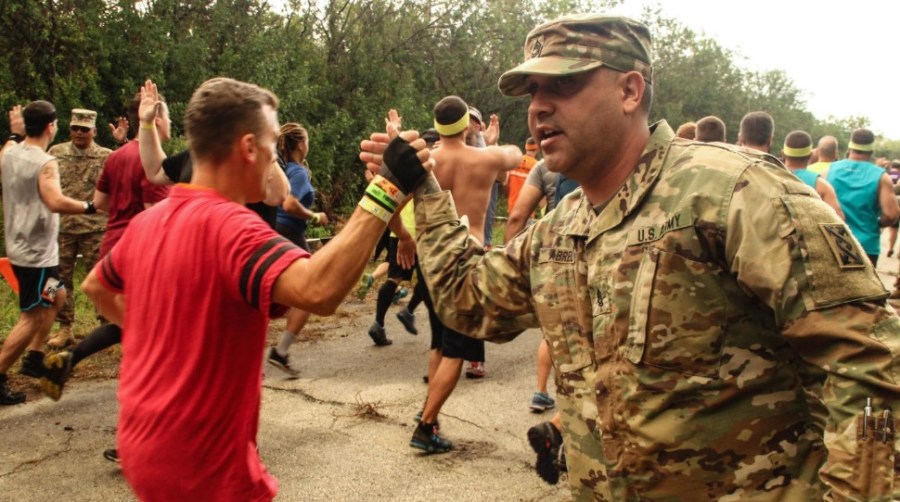Science
Data Science Initiative in Raleigh Targets Veteran Suicide Prevention

In an innovative approach to preventing veteran suicides, data science is being utilized in Raleigh, North Carolina. The nonprofit organization Stop Soldier Suicide, under the leadership of chief product officer Austin Grimes, has launched the Black Box Project. This initiative aims to analyze the digital footprints of veterans who have tragically lost their lives to suicide.
Austin Grimes, a veteran himself with eight years of service in the U.S. Army, understands the silent struggles many military members face. Grimes has personally experienced the pain of losing friends to suicide, an unfortunate reality that drives his commitment to this cause. “We lose 6,500 on average each year in the veteran population alone; we also lose 50,000 Americans at large outside of that community,” he stated.
The Black Box Project collects data from devices loaned by families who have lost loved ones to suicide. Grimes explained that the research team has analyzed data from over 100 donated devices. By employing forensic methodologies, data science tools, and artificial intelligence, they are uncovering patterns that may help identify individuals at risk.
Significant findings from the research indicate that veterans often maintain an external facade, concealing their struggles. Grimes noted that observable activities such as text messages, phone calls, and emails reveal a steady risk pattern in the final year of life. Additionally, changes in sleep patterns and financial stress have emerged as critical factors contributing to this crisis.
The overarching goal of the Black Box Project is to harness these insights to prevent future tragedies. Grimes emphasizes the importance of empathy and understanding when addressing mental health issues. He encourages a non-judgmental approach, stating, “Empathy matters and understanding matters.”
As the initiative continues to evolve, the findings from the Black Box Project will be documented in a white paper, providing further insight into the intersection of technology and mental health. The hope is that by analyzing these digital patterns, communities can better support veterans and reduce the alarming suicide rates.
The work being done in Raleigh serves as a reminder of the ongoing challenges faced by veterans and highlights the potential of data science in addressing these critical issues. Through collaboration and compassion, there is hope for meaningful change in the fight against veteran suicide.
-

 Technology5 months ago
Technology5 months agoDiscover the Top 10 Calorie Counting Apps of 2025
-

 Health3 months ago
Health3 months agoBella Hadid Shares Health Update After Treatment for Lyme Disease
-

 Health3 months ago
Health3 months agoErin Bates Shares Recovery Update Following Sepsis Complications
-

 Technology4 months ago
Technology4 months agoDiscover How to Reverse Image Search Using ChatGPT Effortlessly
-

 Technology1 month ago
Technology1 month agoDiscover 2025’s Top GPUs for Exceptional 4K Gaming Performance
-

 Technology3 months ago
Technology3 months agoElectric Moto Influencer Surronster Arrested in Tijuana
-

 Technology5 months ago
Technology5 months agoMeta Initiates $60B AI Data Center Expansion, Starting in Ohio
-

 Technology5 months ago
Technology5 months agoRecovering a Suspended TikTok Account: A Step-by-Step Guide
-

 Health4 months ago
Health4 months agoTested: Rab Firewall Mountain Jacket Survives Harsh Conditions
-

 Lifestyle5 months ago
Lifestyle5 months agoBelton Family Reunites After Daughter Survives Hill Country Floods
-

 Health3 months ago
Health3 months agoAnalysts Project Stronger Growth for Apple’s iPhone 17 Lineup
-

 Technology4 months ago
Technology4 months agoHarmonic Launches AI Chatbot App to Transform Mathematical Reasoning





















